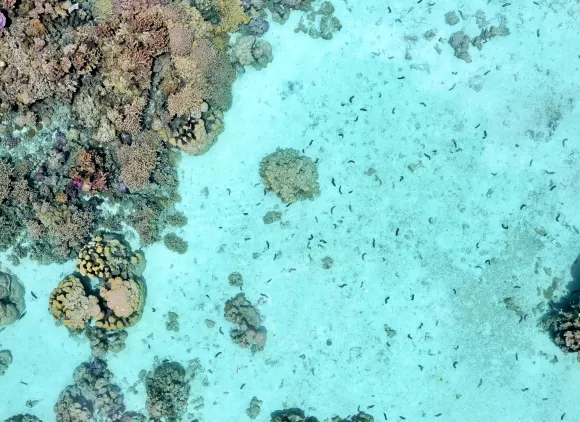The U.S. National Science Foundation Division of Ocean Sciences (OCE) supports research, infrastructure and education on all aspects of the global ocean.
What we support
OCE advances research on ocean cycling from geologic to modern times, helps identify unique marine organisms and connects oceanic processes to those in the atmosphere and on land. The division supports research, infrastructure and education that help us understand how the ocean impacts and is impacted by human activities. OCE also leads and participates in efforts to help ensure long-term ocean health and the sustainable use of ocean resources.
To facilitate this research, the division manages cutting-edge research infrastructure, sometimes in collaboration with federal and international partners, to advance ocean research.
Core programs
OCE is organized into programs to maintain the division’s ongoing investments in disciplinary-based research and promote cross-disciplinary collaboration.
Biological Oceanography
Supports projects focused on biological processes in the ocean.
Physical Oceanography
Supports projects focused on physical processes in the ocean.
Chemical Oceanography
Supports research on all aspects of chemistry in the ocean basins and margins, as well as the Great Lakes.
Marine Geology and Geophysics
Supports research on all aspects of geology and geophysics in the ocean basins and margins, as well as the Great Lakes.
Integrative Programs (IPS)
Supports oceanographic research vessels, underwater vehicles and observatories that provide state-of-the-art equipment and assets for the ocean sciences community.
IPS also supports efforts to integrate ocean research and education through two main programs: the Research Experiences for Undergraduates (REU) site program and the Faculty Early Career Development (CAREER) program.
U.S. Academic Research Fleet (ARF)
Includes oceanographic vessels and submersibles that operate on the seafloor and throughout the water column, including the Great Lakes and remote polar regions. OCE funds ARF ship operations and submersibles in the National Deep Submergence Facility in support of NSF research projects. The division also runs the Oceanographic Facilities and Equipment Support program, which supports the procurement, conversion, enhancement or annual operation of ocean, coastal, nearshore and Great Lakes facilities used for research and education.
NSF is supporting the construction of three vessels to modernize and support the ARF. All three Regional Class Research Vessels (R/V Taani, R/V Narragansett Dawn and R/V Gilbert R. Mason) will be floating laboratories for ocean-going scientists, capable of precise station-keeping for water column and sediment sampling. Each vessel will also support the use of remotely operated and autonomous vehicles.
NSF Ocean Observatories Initiative (NSF OOI)
A distributed ocean research observatory with arrays of instrumented buoys, profilers, ocean gliders and autonomous vehicles operating within different open-ocean and coastal regions. It also includes a cabled array of instrumented platforms deployed over the Juan de Fuca tectonic plate. NSF OOI allows researchers to investigate a spectrum of oceanic processes, including episodic, short-lived events and more subtle, long-term changes and emergent phenomena. The facility provides data and infrastructure for the research and educational community to develop and pursue experimental and numerical ocean studies.
Ocean Technology and Interdisciplinary Coordination (OTIC)
Supports the development of instrumentation with broad applicability to ocean science research that enhances the observational, experimental or analytical capabilities of the ocean science research community.
NSF Global Ocean Biogeochemistry Array (NSF GO-BGC)
A global robotic network that includes autonomous robotic floats to monitor the ocean. The floats will monitor ocean temperature, salinity, pH, nitrate, chlorophyll, suspended particles, light, alkalinity and other variables from the surface to a depth of 2,000 meters. NSF GO-BGC data are freely available.
U.S. Scientific Ocean Drilling Program
Formerly the International Ocean Discovery Program, this program supports a network of drilling platforms and technologies that allow researchers to explore the ocean basins and Earth's evolution and structure. Scientific drilling platforms provide sediment and rock samples, borehole observations, seafloor monitoring, shore-based facilities and opportunities to conduct experiments beneath the seafloor.
Data management and sharing
Data generated with OCE funds must be publicly available and stored in the Federal National Data Center repositories.
Stay connected
Subscribe to OCE email updates
Be notified of the latest news, funding opportunities and events from OCE.
OCE news and announcements
Keep up with the latest news.
Become a reviewer
Gain insights into the NSF merit review criteria and what makes a good proposal.
Reach out to program directors
Contact NSF program directors to determine if your research idea is a good fit.


